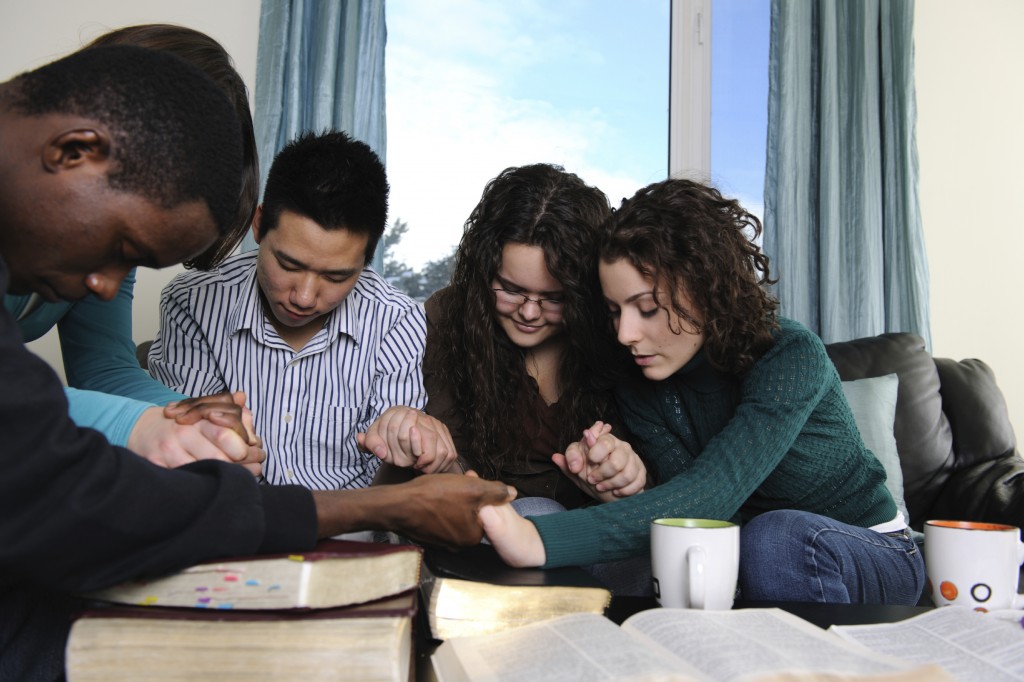We all have an opinion on small group life. Some of us lean towards “small groups are amazing.” Some of lean towards “small groups are just plain difficult. And awkward.” Rarely is someone neutral when it comes to intentionally building spiritually-formative relationships with others.
I’ve been a part of life-giving small groups that I long to gather with week in and week out. Ones where I leave with more of Jesus than when I came. I’ve also been a part of groups that seem to suck the life right out of me. Ones where I give, but get nothing in return. (I think that has to do most prominently with small group dominators, but that’s another post for another day)
Healthy small groups teach us more than they often set out to teach. We are molded and changed in so many ways, because God uses others in mighty ways to make us more like Jesus. In fact, you can’t be like Jesus without others. It’s impossible. You can’t serve others, love others, be generous with one another, or accomplish any of the “one another” commands in Scripture by yourself.
9 unintended benefits of small group life
1. Not everybody thinks like you do, and that’s ok. (Tweet that)
Sometimes, our pride needs a swift body check. We need to run after a fly ball in center field and crash into the wall. We think we’re the only ones with a corner on the “right” answers, and we need subtle, and not-so-subtle, reminders that there are other ways to think.
2. Not everybody thinks like you do, and you can still love them them.
Loving those who can, and will, love us back is barely love. Loving those who think and act differently than we do is more challenging, and takes more faith. It’s more risky and more difficult. Just because someone thinks differently doesn’t mean you can’t go out of your way to love them. Hanging around people that think like you do is more dangerous than living life with different people that stretch you.
3. Jesus followers can have fun. (Tweet that)
Maybe this post was written just so you’d read this benefit. If you’re a Jesus follower, please don’t check your humor and love of laughter, fun, and general frivolity at the door. After all, a cheerful heart is good medicine. (Proverbs 17:22)
4. People desperately need you.
You have gifts. You have a story. You have experiences. You have a living, breathing, active relationship with Jesus. And other people need you. God has created us to work interdependently, and though you may not have been valued for your contribution to the Church in the past, small group highlights the value you bring to the table. (1 Corinthians 4:12-31)
5. You desperately need people.
You may have gifts, but you don’t have them all. It becomes quickly and readily apparent in group life that others are wired and strengthened differently than you. Which is beautiful! No longer do you have to be all things to all people. You can be the you God created you to be, and lean in on others as they’re being who God created them to be.
6. Prayer works
Don’t believe me? Try it. Try asking for prayer. Try praying for someone else. God uses the prayers of the righteous to accomplish His work. (James 5:16)
7. The bible is living and active.
As you’re discussing the Scriptures week in and week out, you’ll find God speaking right into your story, as if the Bible were written just for you, where you’re at in life. He’ll speak through others in your group, using the Scriptures as the Truth you need to think, and live, differently. (Hebrews 4:12)
8. Confession brings healing. (Tweet that)
The more comfortable you grow with your group, the more you’ll be willing to be open and honest with your faults. As you confess, you’ll find healing. (James 5:16)
9. Dirty hands clean your heart. (Tweet that)
The more you love people, the dirtier your hands get. The more deeply you love others, the more likely it is you’ll get burned. Serving people well necessitates getting messy. Because people are messy. And the more you love, serve, and give generously of yourself, the more you begin to look like Jesus.
Are you in a group? Any other unintended benefits you’ve found?








